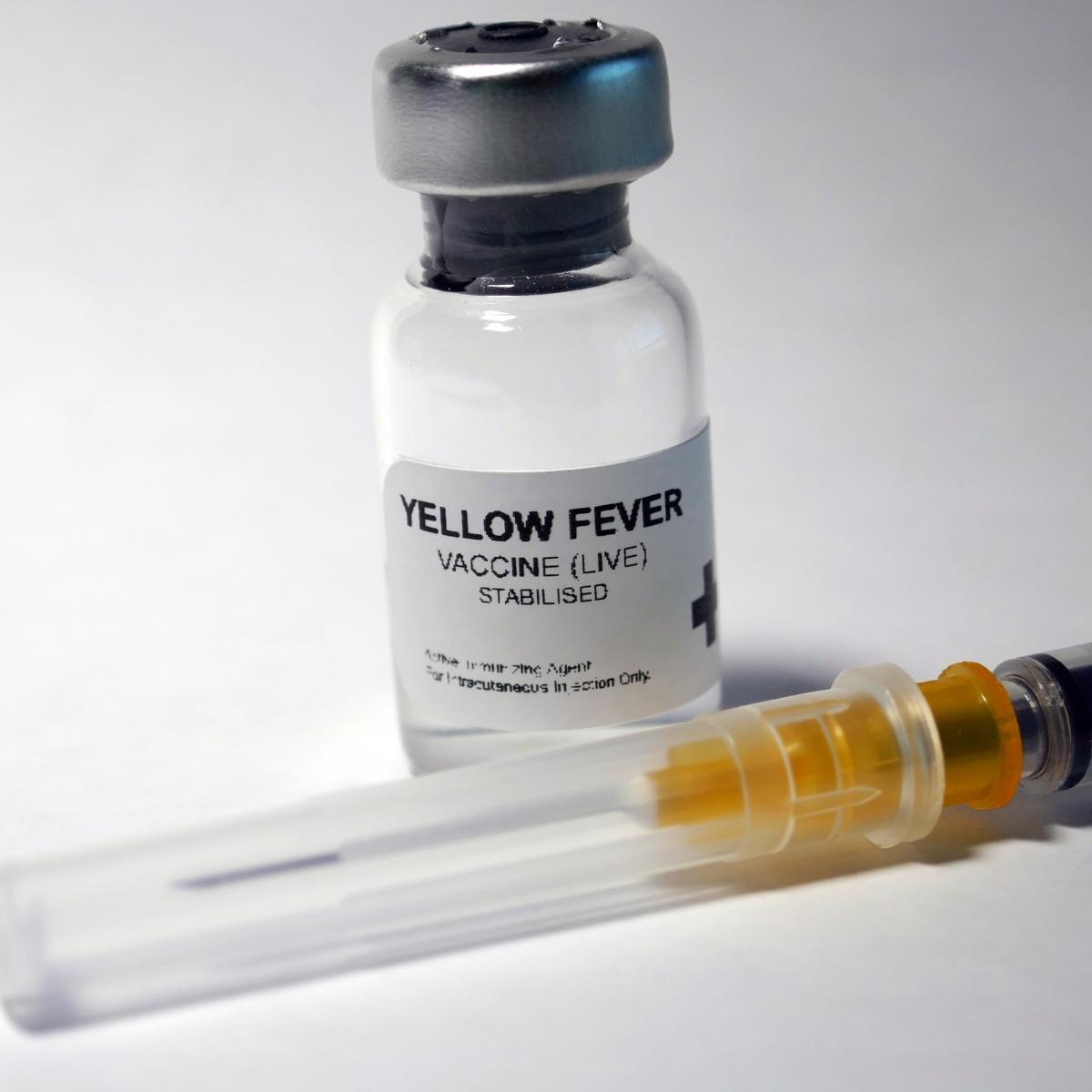Causative and risk factors
Yellow fever is transmitted to humans through a bite from a mosquito infected with the yellow fever virus. It cannot be transmitted directly from infected humans to other humans.
You are at risk of being infected with yellow fever if you live in an area endemic to the yellow fever virus or you are travelling to an area where yellow fever is endemic.
Clinical presentation
After being infected, the virus undergoes an incubation period of 3-6 days. After that, it gives rise to the following symptoms:
Stage 1 (Acute infection): Symptoms remain for 3 to 4 days. The patient develops fever, headache, aches and pains, loss of appetite, vomiting and jaundice.
Stage 2 (Remission phase): The patient has no symptoms for about 24 hours
Stage 3 (Toxic phase): Few patients develop this toxic phase where multiple organ systems are involved, giving rise to bleeding from various orifices such as eyes, nose, stomach etc. The patient experiences pain in the abdomen and the stool and vomit may be stained with blood. Skin becomes easily bruised. The patient becomes confused and may develop seizures, kidney failure, coma and death.
Yellow fever can give rise to complications like disseminated intravascular coagulation, secondary bacterial infections, shock, kidney failure, liver failure and coma.
Diagnosis & Investigations
Yellow fever must be differentiated from hemorrhagic fevers such as dengue, ebola virus infection, liver diseases such as hepatitis E, toxic hepatitis and other tropical diseases such as Lassa fever, Congo fever etc.
After a thorough history taking and physical examination, blood and urine tests are advised. A complete blood count may reveal leucopenia and thrombocytopenia. In urine test, the urinary protein and urobilinogen may be elevated.
Liver and kidney function tests may be abnormal and the blood clotting time is prolonged. Blood tests may demonstrate the presence of virus-specific antibodies. An ECG and the serum electrolyte levels are tested.
Treatment
There is no specific treatment for yellow fever. Treatment is given on the basis of presenting symptoms. IV fluids and electrolytes are administered to the patient. Blood transfusions may be needed in cases of severe blood loss. Antibiotics may be given if a secondary infection is present. Dialysis may be needed in case of a failing kidney.
Yellow fever can be prevented by yellow fever vaccination. All individuals residing in areas where yellow fever is endemic must be vaccinated. Travelers visiting areas where yellow fever is endemic must also be vaccinated.






























